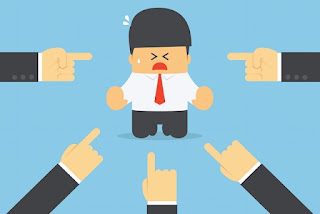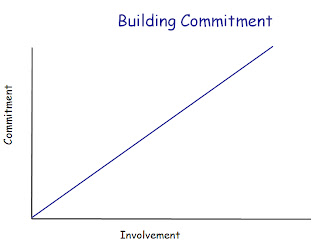THE FINE ART OF HEALTHY CRITICISM
Criticism
may not be agreeable, but it is necessary. It fulfils the same function as pain
in the human body. It calls attention to an unhealthy state of things.
-Winston
Churchill-
The dictionary meaning of criticism is “the
expression of disapproval of someone or something on the basis of perceived
faults or mistakes”. It clearly means that criticism is subjective. Healthy
criticism is one of the most underrated skills at workplace. Let’s accept the
fact that most people don’t like to be criticized and hence criticizing other
people is a tough job. In fact, successful managers are always good at healthy
criticism. They convince people to change in an amicable manner. ‘What you say’
and ‘how you say it’ becomes important and critical when it relates to
criticism. Colleagues who engage in healthy criticism are regarded as good
mentors and guides. Giving and receiving feedback at the workplace is essential
for continuous improvement and progress of the team. This is an integral part
of workplace dynamics. However, the objective of criticism should always be
improvement or development. Any criticism to be deemed healthy needs to fulfill a few conditions-
1. It should be aimed at a process/ event
and not a person. Using criticism to target someone personally just goes on to
speak volumes about the intention and attitude of the criticizer.
2. ‘Praise in public and criticize in
private’. Criticism is always more acceptable when it’s accompanied by
reasoning, logic and justification. Hence, it’s always better to have a one-on
–one conversation when you can do it.
3. Criticism should not be used as a tool
to belittle other people. It should be used as a tool for improvement.
4. ‘Practice before you preach’: Criticize
others when you are confident that you have yourself practiced it. Never
advocate what you don’t follow. It’s a matter of credibility and substance.
5. Contextualize and customize criticism:
Just like gifts, criticism needs to be customized and contextualized to ensure
better acceptance.
Choose
the words you use to criticize very carefully. The words you use may affect
someone psychologically. There is a certain intensity that every word carries
with itself. They also set the “tone” of the conversation. Many a time, people
are very casual with regard to the words they use to criticize others.
Criticism should also be timed adequately in order to ensure that it is
fruitful. People expect credibility from the person who criticizes. When you
criticize others you need to have appropriate KSA’s (Knowledge, Skills and
Attitude) relating to the matter of criticism. This lends the ‘credibility’
factor and makes criticism from you more acceptable. For example, you cannot
criticize someone for poor body language when you do not display good body
language. These are minute details which are neglected in several cases. It’s
also important to understand that criticism in itself does not serve any
purpose completely. It needs to be supplemented with instances, guidance and
improvement plans. This completes the loop of the criticism process and makes
criticism successful. Therefore, the next time you are about to criticize
someone, think twice!


Comments